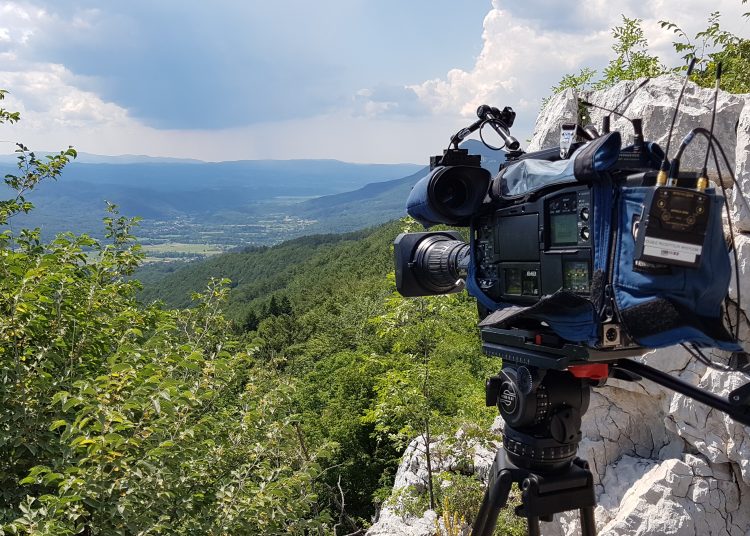The Western Balkans, a mosaic of cultures, languages, and histories, presents a unique challenge for foreign journalists. Slovenia and Croatia, now EU members and once part of the Austro-Hungarian Empire and later Yugoslavia, exemplify the region’s complexity and how distinct every country in the region is from the other. Missteps in reporting here can lead to cultural insensitivity or factual errors, risking media credibility. This guide underscores the necessity of local expertise to navigate these intricacies, focusing on Slovenia and Croatia while acknowledging Bosnia and Herzegovina, Serbia, Montenegro, Kosovo and North Macedonia.
Historical Context: From Empires to Nations
Austro-Hungarian Legacy
Slovenia: Retains Central European influences, visible in architecture and Catholic traditions. The capital, Ljubljana, reflects Habsburg elegance.
Croatia: Coastal regions like Dalmatia show Venetian heritage, while inland areas like Slavonia bear Austro-Hungarian agricultural imprints.
Yugoslav Era and Its Aftermath
The Socialist Federal Republic of Yugoslavia (1945–1991) unified six republics under Tito’s “Brotherhood and Unity” ethos. Post-breakup, Slovenia and Croatia declared independence in 1991, leading to the Ten-Day War (Slovenia) and the Croatian War of Independence (1991–1995).
Why It Matters: Misunderstanding these layers can lead to oversimplified narratives. For instance, referring to Slovenia as “Balkan” without acknowledging its Central European identity may alienate locals.
Cultural Nuances and Linguistic Pitfalls
Language Sensitivity
Slovenian (Slovene) and Croatian are distinct languages. Mispronouncing cities like “Ljubljana” (Lyoo-blyah-nah) or “Rijeka” (Ree-yeh-kah) undermines credibility.
Pro Tip: Use local pronunciation guides. Example: The Croatian island of “Hvar” is pronounced “Hvar” (silent H), not “Huh-var.”
Religious and National Identity
Slovenia: Predominantly Catholic, with a strong alpine identity.
Croatia: Catholic coastal regions contrast with more diverse inland areas (e.g., Eastern Slavonia’s Serbian minority).
Common Mistake: Overlooking regional diversity, such as treating Croatia’s Dalmatia and Slavonia as culturally homogeneous.
Legal & Political Sensitivities
Media Laws & Press Freedom
Journalists operating in Slovenia and Croatia should be aware of differing legal landscapes:
- Slovenia: Generally ranks high on press freedom indexes, but strict defamation laws can pose challenges, especially when reporting on politicians or businesses.
- Croatia: Press freedom is constitutionally protected but has seen an increase in SLAPP lawsuits (Strategic Lawsuits Against Public Participation) aimed at silencing investigative journalism. Cases involving corruption, organized crime, or nationalist politics are particularly sensitive.
Pro Tip: Consult your local cross-border journalism expert or journalist associations when dealing with legal uncertainties.
Political Pressures & Misinformation
- The media landscape in both countries is polarized, with government influence over public broadcasters being a recurring issue.
- Disinformation campaigns related to historical events, war crimes, and EU policies can distort public discourse.
- Journalists covering sensitive topics (e.g., war crimes trials, ethnic minority rights) may face online harassment or smear campaigns.
Pro Tip: Verify information with independent sources like NewsCollective.org and other Fact-checking platforms.
Case Study: ECoC 2025 in Nova Gorica and Gorizia
Background
The European Capital of Culture 2025 highlights cross-border collaboration between Nova Gorica (Slovenia) and Gorizia (Italy), cities divided post-WWII.
Reporting Errors
- Historical Oversight: Ignoring Gorizia’s Slovenian minority and its role in the collaboration.
- Misrepresentation: Ignoring the fact that Nova Gorica won the title of ECoC 2025 together with German Chemnitz and that Italian city of Gorizia is a joint partner. Or framing the project as purely cultural, neglecting its political significance in EU integration.
- Local Voices Erased: Prioritizing international perspectives over narratives from residents who lived through the border’s division.
Pro Tip: Reference the 1947 Paris Peace Treaty’s impact and the 2004 Schengen Zone expansion to contextualize the event.
The Role of Cross-Border Journalism Experts
- Fact-Checking: Example: A 2023 article misattributed Slovenia’s economic success solely to EU membership, overlooking its Yugoslav-era industrialization. Experts can correct such oversights.
- Editing and Context: Ensure terms like “Yugoslav Wars” specify conflicts (e.g., Croatian War) rather than generalizing.
- Pronunciation Guides: Provide audio clips from local partners for names like “Anže” (An-zhe) in Slovenian or “Nova Gorica (Novah-Goritzah” (Cha-chak).
Practical Tips for Engaging the Region
Collaborate with Local Cross-Border Journalism Experts
- Local experts navigate bureaucratic hurdles (e.g., filming permits in Slovenia’s national parks, Croatia’s border areas).
- They can provide insights into regional political tensions and media biases.
Understand Media Laws
- Slovenia’s defamation laws are stricter than Croatia’s; know the legal landscape.
- In Croatia, public figures often use lawsuits to intimidate reporters—ensure your legal coverage is airtight.
Digital & Safety Considerations
- Online Harassment: Journalists covering sensitive topics (e.g., war crimes, corruption) may face coordinated online abuse. Use secure communication channels (Signal, ProtonMail) to protect sources.
- Misinformation & Deepfakes: Be cautious with social media trends, as false narratives about history and politics are widespread.
- Safe Reporting Practices: Avoid sharing real-time locations on assignments and be aware of surveillance risks, especially in politically charged areas.
Pro Tip: Use the 1995 Erdut Agreement (ending the Croatian War) as a reference for reporting on post-conflict reconciliation.
Covering Slovenia and Croatia demands more than surface-level understanding; it requires respect for historical depth and cultural nuance. The ECoC 2025 project exemplifies how cross-border stories, when mishandled, can perpetuate stereotypes. By partnering with local cross-border journalism experts, journalists ensure accuracy and sensitivity, safeguarding their outlet’s reputation. In the Western Balkans, expertise isn’t just helpful—it’s essential.
Don’t Miss Out on Your Story
Contact us today to get the full support of Cross-Border Journalism experts. Get your intelligence report on the topic of your choice, secure materials, schedule interviews, and get high quality fact-checking service for your draft. Let’s work together to tell a story that transcends borders and inspires millions.
________________________________________
Contact Information (click on buttons):
Text Us on WhatsApp or USE CONTACT FORM TO MESSAGE US
Languages: English, German, Slovenian, Italian, Croatian, Serbian
Follow our Stories:
• NewsCollective: www.NewsCollective.org
• Hashtags: #NewsCollective #crossborderjournalism #Slovenia #Croatia #WesternBalkans



